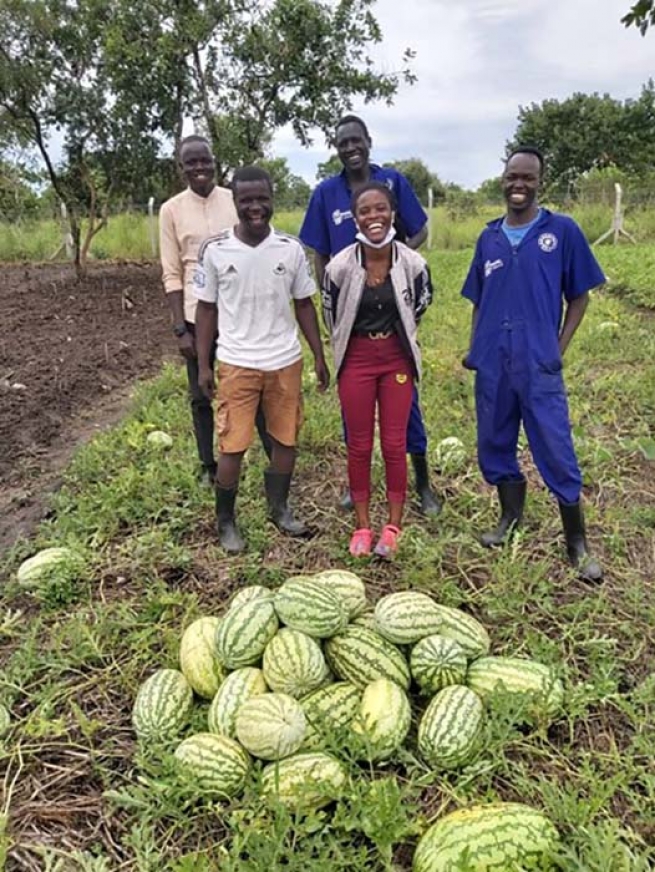The following are some of the effects of the Covid-19 epidemic and its induced lockdown:
- As hospitals are overwhelmed with corona patients, it is found to be impossible to treat other chronically ill patients suffering from diabetes, high blood pressure, HIV/AIDS and those with heart ailments. Several deaths are reported due to this.
- Prices of food and other essential commodities have skyrocketed, pushing more people to extreme poverty. Added to the rise of prices are taxes, transport charges and other service charges, that out of reach for the poor and vulnerable.
- The majority of the Ugandan population survives on the sale of agricultural produce. As lockdown has brought transport to a standstill and the closure of markets, agricultural produce remains unharvested, and they are sold for throw-away prices, leaving the farmers as big losers.
- Market vendors, small-scale traders and retail shopkeepers are the worst hit group of people.
With this background information, it is painful to describe the state of refugees who are in precarious situations. From the time Coronavirus hit the East African nation, food rations given to the refugees were gradually reduced to 40%, which means, today a refugee receives about 5 kgs of maize flour, 3 kgs of beans, half a liter of cooking oil and a few grams of salt. The supply of other non-food items was completely stopped.
Salesian missionaries working with the vulnerable young people in the Palabek Refugee Settlement witness enormous problems that the young people undergo. One of the pressing problems is redundancy among young people due to the closure of schools, youth centers, church activities, and other leisure activities of young people. With a curfew in force, they are also unable to move in the evening to visit friends and relatives within the Settlement Camp.
Given this situation, the Salesians have tried to keep at least a few young people active and useful. Though the Vocational Training Center is closed, they have kept the agriculture activities going. About 40 young men and women come to work in the garden and keep clearing more land for planting food crops such as maize and beans. Though the rains were late, Salesians managed to cultivate a substantial amount of fruits and vegetables, and share with students food items and agricultural produce.
Refugee students also found time to clean the local Health Center and plant trees as their environment protection activity.
“We also thank Insieme Si Può for their generous donation of food. Soon we will be collaborating with AVSI – an Italian-founded charitable organization and Women Feed Africa, another agricultural training organization in training and food production. Many of our activities are made possible by the assistance of Jugendhilfe Weltweit, through Vereinigung Don Bosco Werk from Don Bosco Switzerland. Our big thanks to them,” says Fr Lazar Arasu SDB, Director of the Salesians of Don Bosco Refugee Services, in Palabek Refugee Settlement.
Moreover, the Masonry trainees, both past and present students, have been engaged in landscaping and preparing lawns within the VTC premises. “Now our school is wonderful to see. We are also engaged in other construction works such as the chapel, fencing our land and other maintenance works. Students get paid for their work which is a boon during this time of great need,” Fr Arasu ends.
-
 Title
Title
Title
Title
-
 Title
Title
Title
Title
-
 Title
Title
Title
Title
-
 Title
Title
Title
Title
-
 Title
Title
Title
Title
-
 Title
Title
Title
Title
-
 Title
Title
Title
Title
-
 Title
Title
Title
Title
-
 Title
Title
Title
Title
-
 Title
Title
Title
Title
-
 Title
Title
Title
Title
-
 Title
Title
Title
Title
https://www.infoans.org/en/component/k2/item/13264#sigProId780a60c2b3


